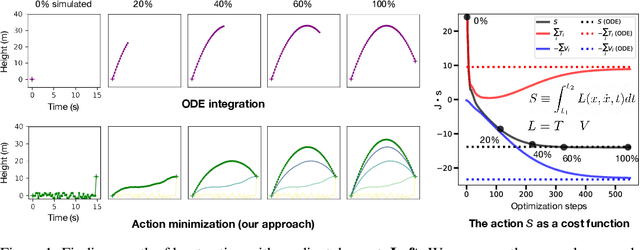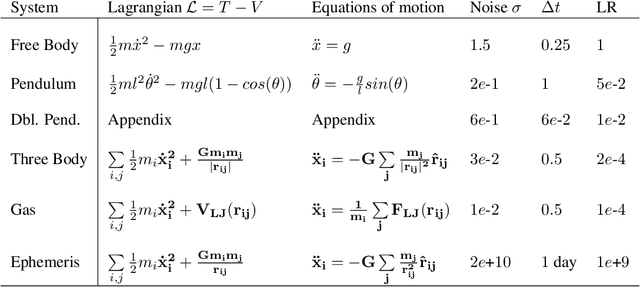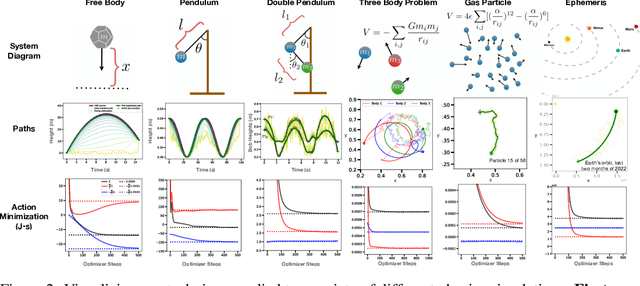Nature's Cost Function: Simulating Physics by Minimizing the Action
Paper and Code
Mar 03, 2023



In physics, there is a scalar function called the action which behaves like a cost function. When minimized, it yields the "path of least action" which represents the path a physical system will take through space and time. This function is crucial in theoretical physics and is usually minimized analytically to obtain equations of motion for various problems. In this paper, we propose a different approach: instead of minimizing the action analytically, we discretize it and then minimize it directly with gradient descent. We use this approach to obtain dynamics for six different physical systems and show that they are nearly identical to ground-truth dynamics. We discuss failure modes such as the unconstrained energy effect and show how to address them. Finally, we use the discretized action to construct a simple but novel quantum simulation.
 Add to Chrome
Add to Chrome Add to Firefox
Add to Firefox Add to Edge
Add to Edge